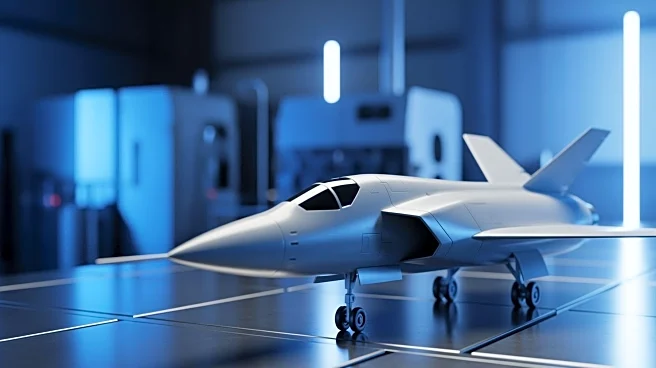What's Happening?
Raytheon Technologies has been awarded a $1.25 billion contract for the manufacturing of Tamir interceptors at the newly established R2S facility in Camden, Arkansas. This development is part of a broader initiative to enhance U.S.-Israel industrial cooperation, particularly in the defense sector. The contract is linked to the historic expansion of the Iron Dome missile defense system, which has received significant funding from the U.S. defense assistance package. The expansion aims to accelerate the production of Iron Dome interceptors and supporting systems, with substantial investments earmarked for Israel's air-defense systems. This initiative is expected to bolster the capabilities of Rimon Technologies, an Israeli supplier of critical
components for the Iron Dome system.
Why It's Important?
The contract awarded to Raytheon Technologies underscores the strategic importance of U.S.-Israel defense cooperation, particularly in the context of regional security challenges. The Iron Dome system is a critical component of Israel's air-defense architecture, designed to protect against missile threats. The expanded production capabilities at the R2S facility in Arkansas not only strengthen the industrial ties between the U.S. and Israel but also enhance the defense readiness of both nations. For Rimon Technologies, the increased demand for its components presents significant growth opportunities, positioning the company as a key player in the defense sector. This development also reflects the broader geopolitical dynamics in the region, with heightened tensions necessitating robust defense strategies.
What's Next?
As the production surge ramps up, Rimon Technologies is preparing to scale its operations beginning in 2026. The company anticipates a significant increase in demand for its manufacturing capabilities, driven by Israel's sustained investment in its air-defense systems. The strategic acquisition of Rimon by Nukkleus Inc. is expected to further enhance its production capacity and operational capabilities. Additionally, the ongoing geopolitical tensions in the region, particularly with Iran, may lead to further investments in defense infrastructure, necessitating continued expansion of air-defense systems. Stakeholders in the defense industry will likely monitor these developments closely, assessing the implications for regional security and industrial cooperation.
Beyond the Headlines
The expansion of the Iron Dome system and the associated industrial cooperation between the U.S. and Israel highlight the evolving nature of defense strategies in response to regional threats. The collaboration between Raytheon Technologies and Israeli defense firms reflects a strategic alignment aimed at enhancing technological capabilities and ensuring national security. This initiative also raises questions about the ethical and legal dimensions of defense spending and the implications for international relations. As defense technologies continue to advance, stakeholders must consider the long-term impacts on global security dynamics and the potential for increased militarization.















